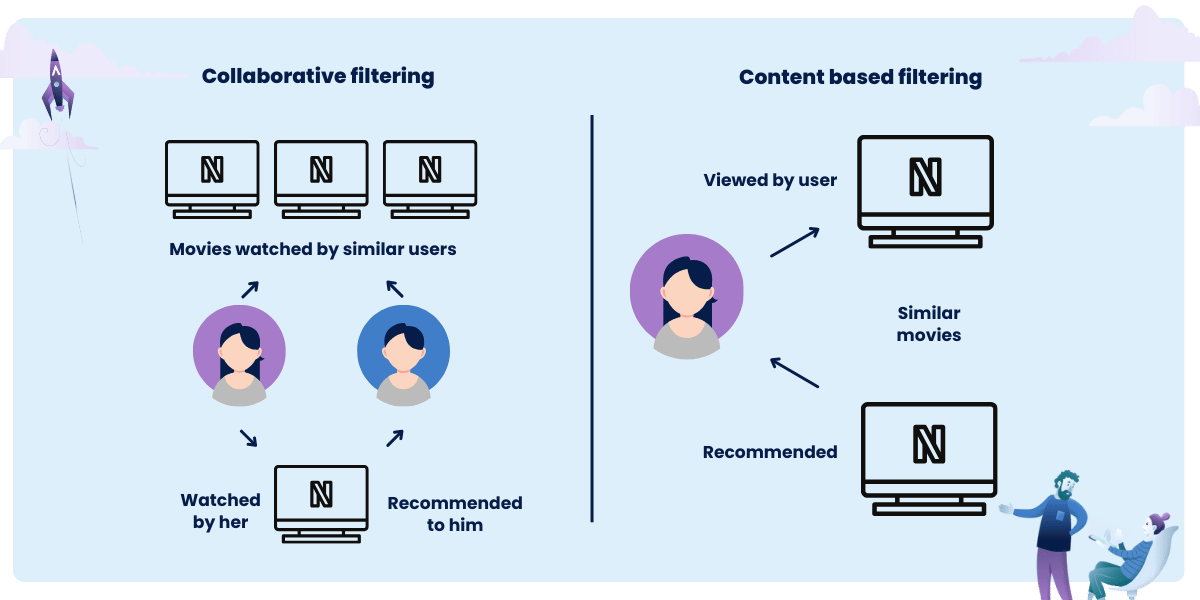Case Studies of E-commerce Businesses Using AI for Personalized Marketing
Meta Description: Explore detailed case studies showcasing how e-commerce businesses successfully utilize AI for personalized marketing, enhance customer engagement, and drive sales.
Artificial Intelligence (AI) is transforming the landscape of e-commerce marketing, offering innovative methods for businesses to tailor their approach to individual customers. With over 50% of companies already adopting AI technologies in various functions, it’s becoming increasingly vital for e-commerce businesses to harness these advancements to thrive in a competitive environment. In this blog, we'll delve into real-world examples, outline key technologies, and discuss practical implications of AI in personalized marketing.
My name is Leif Novak, and I have over 5 years of experience in SEO and content marketing. I’ve assisted more than 20 businesses in optimizing their marketing strategies and achieving measurable success. Today, I’ll guide you through this thoughtful exploration of AI's impact on e-commerce.
Understanding AI in Marketing
What is AI in Marketing?
Artificial Intelligence in marketing encompasses a range of technologies that can analyze data, recognize patterns, and automate decisions. Key components include:
- Machine Learning: Algorithms that improve automatically as they process more data.
- Natural Language Processing (NLP): Techniques that allow machines to understand, interpret, and interact with human language.
- Predictive Analytics: Methods that use historical data to forecast future outcomes, enabling personalized user experiences.
These technologies allow e-commerce businesses to tailor their marketing strategies to meet the preferences and behaviors of individual consumers, ultimately enhancing engagement and customer satisfaction.
Why is AI Adoption Growing?
According to a report by McKinsey, 50% of companies have already adopted AI in some capacity since its capability to optimize personalization and boost sales has become undeniable. E-commerce platforms are increasingly leveraging these technologies to differentiate themselves in a crowded market. As consumer expectations evolve, relying on traditional marketing methods is no longer sufficient.
Groundbreaking Case Studies of AI in E-commerce
1. Amazon: The Pioneer of Personalization

Amazon revolutionized online shopping with its sophisticated product recommendation engine.
- Challenges: Faced immense competition and customer retention challenges.
- AI Solution: Utilized machine learning algorithms to analyze customer behavior and preferences.
- Results: AI-driven recommendations reportedly account for 35% of Amazon's total revenue, significantly increasing average order value. Utilizing customers’ browsing histories and previous purchases, the system creates highly personalized shopping experiences.
2. Sephora: Enhancing Consumer Experience

Sephora, a leading cosmetics retailer, has effectively integrated AI to boost its marketing efforts.
- Challenges: Needed to provide personalized experiences in a highly competitive beauty market.
- AI Solution: Launched a mobile application with features like virtual try-ons and personalized product recommendations using deep learning.
- Results: The app has improved user engagement significantly, driving a measurable increase in sales and customer loyalty.
3. Netflix: Redefining Engagement

While primarily known as a streaming service, Netflix displays how personalized marketing can be applied beyond traditional e-commerce.
- Challenges: The customer need for diverse content types and viewing preferences.
- AI Solution: Implemented a recommendation algorithm based on user behavior and viewing patterns, utilizing complex machine learning techniques.
- Results: Personalized suggestions have driven high user engagement, which is crucial for retention; around 80% of viewers are directed towards new content through AI recommendations.
Key AI Technologies and Tools for Personalization
Several technologies and platforms facilitate personalized marketing strategies for e-commerce businesses:
| AI Tool | Functionality |
|---|---|
| Google AI | Personalized searches and recommendations based on user data. |
| Salesforce Einstein | AI features for CRM that provide tailored marketing automation. |
| Shopify AI | Offers custom product recommendations and smart inventory management. |
Integrating these tools into marketing strategies can streamline operations while enhancing personalization.
Consumer Behavior Insights
Research reveals that 80% of consumers are more likely to purchase when they receive personalized experiences. This statistic underlines the crucial connection between personalization and consumer buying behavior, making personalized marketing not just beneficial but essential for e-commerce growth.
Legal and Ethical Implications
As e-commerce businesses leverage AI, they must navigate ethical considerations related to data privacy and security. Compliance with regulations such as GDPR is critical to ensure consumer trust and safeguard sensitive information. Transparency about how consumer data is utilized not only enhances credibility but also fosters loyalty among customers.
Trends and Predictions in AI and Personalized Marketing
The integration of AI in marketing is witnessing transformative trends, including:
- Hyper-Personalization: Utilizing real-time data for immediate customization, enhancing user experiences dynamically during shopping activities.
- Augmented Reality (AR): Integrating AI with AR to provide immersive shopping experiences, allowing customers to visualize products in their environments before purchasing.
Monitoring these trends will help businesses stay ahead of the curve as technology continues to evolve.
Conclusion
AI-driven personalized marketing is proving to be a game-changer for e-commerce businesses, providing valuable insights, enhancing user experiences, and ultimately driving growth. The case studies presented here highlight the efficacy of AI in addressing real-world marketing challenges. Embracing these technologies can place your business in a strong position to compete in the evolving e-commerce landscape.
If you’re interested in implementing or optimizing AI-driven strategies in your marketing efforts, begin your journey today by exploring essential tools or consulting with experts. You don’t want to miss out on the opportunity to elevate your business in an increasingly digital world.
For more insights and to stay updated on the latest trends in AI marketing, consider signing up for our newsletter or exploring additional resources tailored specifically for e-commerce professionals.
